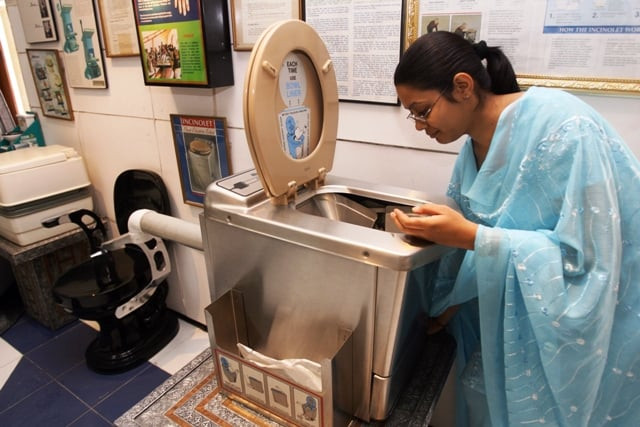Indian woman rewarded for tough 'toilet' stand
Indian woman rewarded for "bold" decision to leave marital home to protest lack of a toilet in the household.

Anita Narre was handed $10,000 by Sulabh International, a non-profit group, for refusing to defecate in the open and sparking a "toilet revolution" in her village in central Madhya Pradesh, according to the district magistrate.
"Narre motivated other women of her village to coax their partners to build toilets. The village is transformed today, thanks to her bold act," B Chadrasekhar told AFP over phone.
Narre left the household of Shivram, a labourer, after her marriage in May last year because the house had no toilet. She returned only once he had built one with help from district officials.
Chandrasekhar said a sanitation campaign that offered to build toilets in the district free of cost had hit a roadblock as villagers thought it was "dirty" to have a toilet inside the house.
"Narre's story is changing mindsets and our sanitation drive is back on track," he said.
"Lots of people from nearby villages have also followed suit and requested us to build latrines. We have moved a proposal to make use of Narre's good example and take her help to motivate others to use toilets."
Lack of toilets and other proper sanitation facilities costs India nearly $54 billion a year through hygiene-related illnesses, lost productivity and other factors stemming from poor sanitation, a World Bank study has found.
The problem is especially acute in rural areas where women suffer the most due to lack of proper sanitation facilities.
A UN study in 2010 found more people in India have access to a mobile phone than to a toilet.
India's mobile subscribers totalled around 894 million at the last count, enough to serve more than half of the country's 1.2 billion population.
But just 366 million people - around a third of the population - had access to proper sanitation, said the UN study.
Jairam Ramesh, India's rural development minister, on Wednesday called for making India "an open defecation free" country in the next 10 years.
Ramesh said it was shameful that India accounted for almost 60% of open defecations in the world, said a statement.



















COMMENTS
Comments are moderated and generally will be posted if they are on-topic and not abusive.
For more information, please see our Comments FAQ